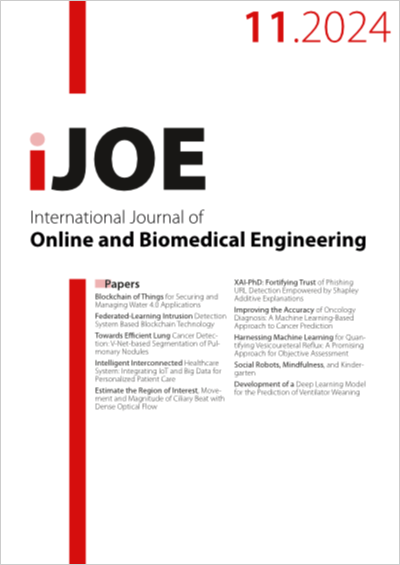Improving the Accuracy of Oncology Diagnosis: A Machine Learning-Based Approach to Cancer Prediction
DOI:
https://doi.org/10.3991/ijoe.v20i11.49139Keywords:
machine learning, cancer, prediction, tumor, modelsAbstract
Cancer ranks among the most lethal illnesses worldwide, and predicting its onset can be a crucial factor in enhancing people’s quality of life by taking preventive measures to improve treatment and survival. This study conducted comparative research to determine the machine learning model with the highest accuracy for tumor type classification, distinguishing between malignant (cancer) and benign tumors. The models evaluated include decision tree (DT), naive bayes (NB), extra trees classifier (ETM), random forest (RF), K-means clustering (K-means), logistic regression (LR), adaptive boosting (AdaBoost), gradient boosting (GB), light gradient boosting machine (LightGBM), and extreme gradient boosting (XGBoost) to identify the one with the best accuracy. The models were trained using a dataset of 569 records and a total of 32 variables, containing patient information and tumor characteristics. The study was structured into sections, such as related studies, descriptions of the models, case study development, results, discussion, and conclusions. The models’ performance was evaluated based on metrics of precision, sensitivity, accuracy, and F1 score. Following the training, the results positioned the XGBoost model as having the best performance, achieving 98% precision, accuracy, sensitivity, and F1 score.
Downloads
Published
How to Cite
Issue
Section
License
Copyright (c) 2024 Michael Cabanillas-Carbonell, Joselyn Zapata-Paulini

This work is licensed under a Creative Commons Attribution 4.0 International License.



